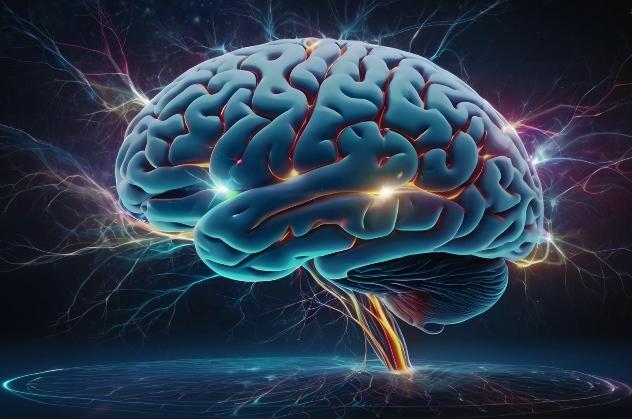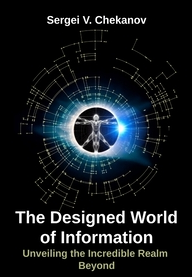The Brain, Consciousness, and the Realm of Limitless Possibilities
May 2, 2025 - Reading time: 7 minutes

Introduction to the YouTube story The Brain, Consciousness, and the Realm of Limitless Possibilities.
It has long been believed that the brain is a generator of thoughts - a computer that processes information received from our senses. It collects, organizes and modifies sensory data, builds experience, and ultimately produces bodily actions. For materialists, the mind is purely computational - capable of reasoning and problem-solving, or what is commonly referred to as intelligence, but nothing beyond that. In this view, consciousness is merely a subjective illusion generated by computations - much like the music that emerges from the spinning of a vinyl record. Our entire inner experience - our sense of self-awareness - is considered nothing more than an illusion.
A direct consequence of this view is the belief that robots could one day become fully equivalent to humans - or even surpass us. In the future, we might design advanced computers that outperform our brains, which are built from long, complex biological molecules.
Empirical evidence appears to support the idea of "brain-as-computer". For instance, when a part of the brain is damaged, certain functionalities are lost - much like damaging part of a computer. We also know that specific areas of the brain are responsible for particular functions, which further supports the notion that the brain operates as a computational device, processing information by different parts of its tissues.
An alternative view, long debated, suggests that the brain functions not only as a processor but also as a receiver - or even a filter - that blocks irrelevant frequencies while tuning into those relevant to this physical world.
The notion that the brain is more than just a computer is thought-provoking. According to this idea, the mind occupies a space between two realms: it has a deeper, immaterial component - often referred to as consciousness or soul - and a computational part that interfaces with the atomic structures of the material world. This computational aspect of the brain is what we call "intelligence".
This distinction clarifies why artificial intelligence is precisely that - intelligence - but not true mind. The mind, by contrast, unites two elements: consciousness and intelligence. The latter is due to actual computations by parts of the brain. In contrast, consciousness is an immaterial entity that launches the algorithms of intelligence.
A mind is like a watermill: consciousness is the water that falls onto the mechanical paddles of the wheel - the computational algorithms of intelligence - setting them into motion and creating meaningful action. Without consciousness, the algorithms of intelligence will remain still.
Unlike the human brain, a computer requires no 'soul,' as its computations are carried out by software - a static, frozen-in-time reflection of human consciousness. Artificial intelligence merely simulates human reasoning, without possessing genuine awareness.
Currently, there are no definitive experiments that can verify which model of the mind is correct, "brain-as-computer" or "brain with immaterial consciousness". In both models, damage to the brain can lead to similar consequences. If the brain functions as a receiver, impairing it would disrupt its ability to process or receive signals, resulting in a loss of functionality.
Yet, while the "brain-as-computer" model offers a straightforward explanation of death - as a descent into nothingness - the idea that the brain also acts as a receiver is far more intriguing and opens up deeper philosophical possibilities.
If one accepts the hypothesis that the brain functions as a receiver - acting as a filter tuned to particular frequencies - then one can conclude that at death, when the brain tissue is destroyed, consciousness loses its ability to interact with the computational mechanism of the brain that connects us to this universe. When the brain's ability to receive and process information is lost, it can no longer tune into the frequency of the atomic world. No further computations can be made to interact with matter. However, the immaterial aspect - consciousness itself - remains. Destroying the receiver doesn't eliminate the signal; the station still exists.
What happens to the soul afterward? Religion offers various answers, navigating through a sea of assumptions shaped by cultural traditions. But one rational approach is this: if you do not know what to assume, then assign equal probabilities to all possible outcomes.
Now imagine this: the soul finds itself in a realm of pure information - a universe of ideas, concepts, and symbols, where every possibility exists simultaneously. Where there is no matter, no time, and space holds no meaning. It is an ocean of equal potentials - a realm of quantum nature, where everything exists as waves of equal probabilities. In this dimension, anything is possible, and every memory and feeling coexist, without needing a material carrier like in our world of matter.
It is the calling of the consciousness to navigate this vast expanse of immaterial existence. With every experience gathered in its earthly plane, the soul refines its resonance, attuning itself to the frequency it chooses. The choice belongs to what lies deep inside of you.
You might ask, "But how can we be sure of any of this?" The truth is, we can't - and perhaps we never will. No experiment can definitively prove it either way. At present, the ideas that the brain is merely a computer or something more remain scientifically indistinguishable.
Atheists hold certain beliefs - they are convinced that death leads only to an infinite nothingness, viewing humans as nothing more than molecular machines. However, the majority of people remain open to other possibilities. It is in our nature to question, explore, and push beyond the limits of certainty in search of what might lie beyond.
Imagine this: a door through which everyone you know vanishes. There are two possible explanations: either they are all annihilated into nothingness, or the door leads to another realm from which no messages can return. If the evidence offers no clear answer, it's wiser to prepare for the more hopeful possibility.
If you choose not to accept the teachings of the countless spiritual leaders who have guided us to this understanding, then simply turn to your own imagination and reason. Ask yourself: What could be just true in a realm of limitless possibilities? Sooner or later, you will face this question - and when you do, you'll discover the correct answer. Because it has always been within you, long before you were aware of it.
by S.V.Chekanov
Comment
This is the full transcript of the YouTube video https://www.youtube.com/watch?v=9WI8DwTEbhQ created by the Designed World channel using the book "The Designed World of Information: Unveiling the Incredible Realm Beyond", by Dr. Sergei V. Chekanov, 466 pages, ISBN: 9798990642836; Hardcover 9798990642843, eBook ISBN 9798990642829; Book webpage: https://ermislearn.org/designed-world/
